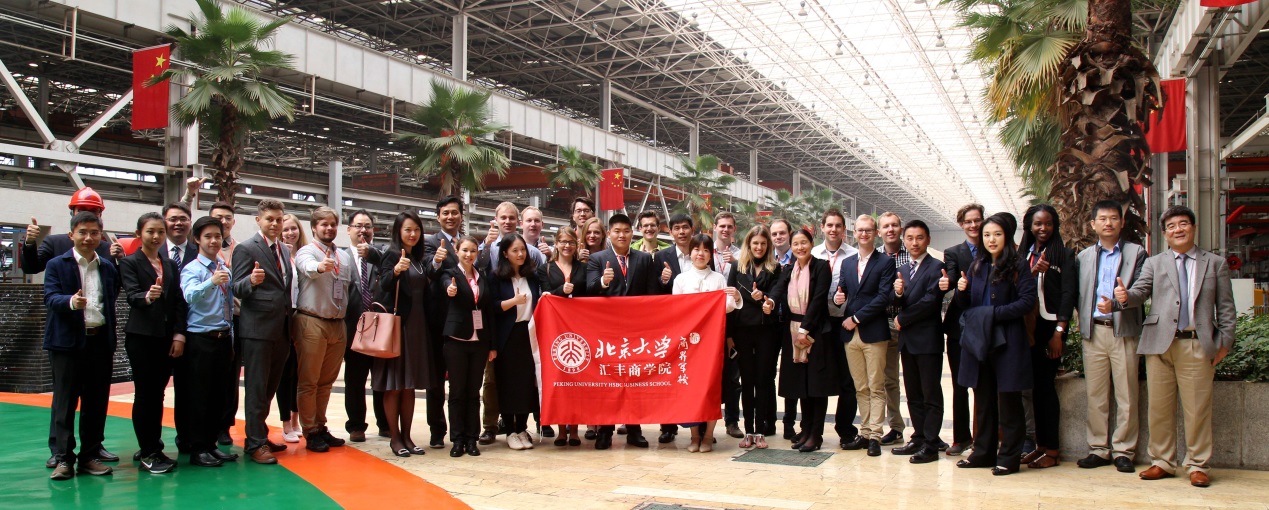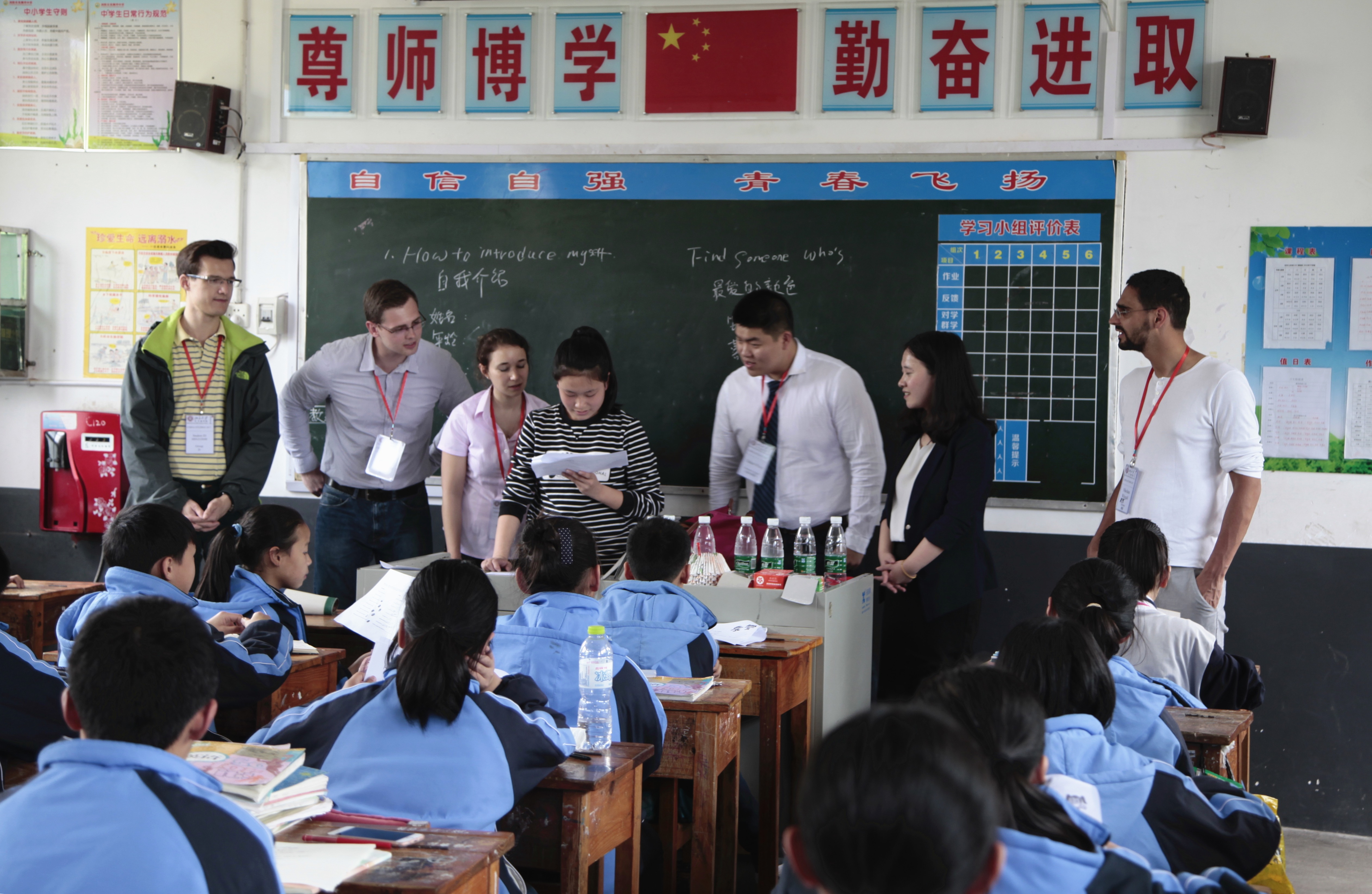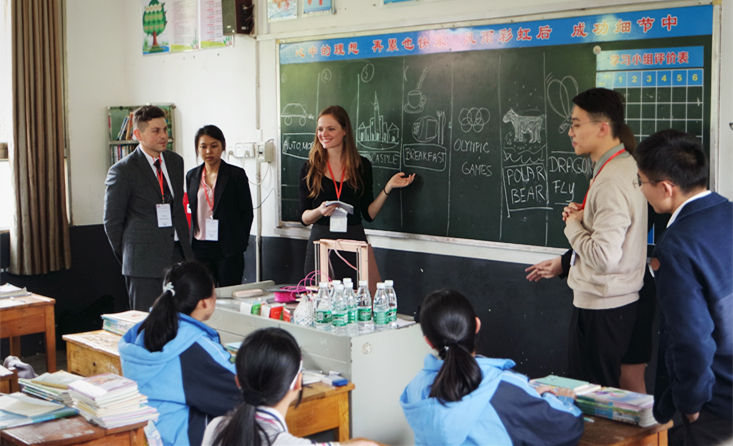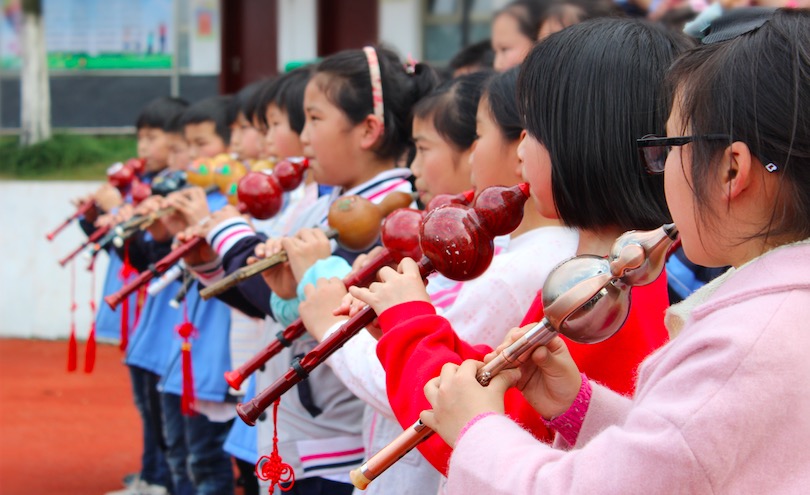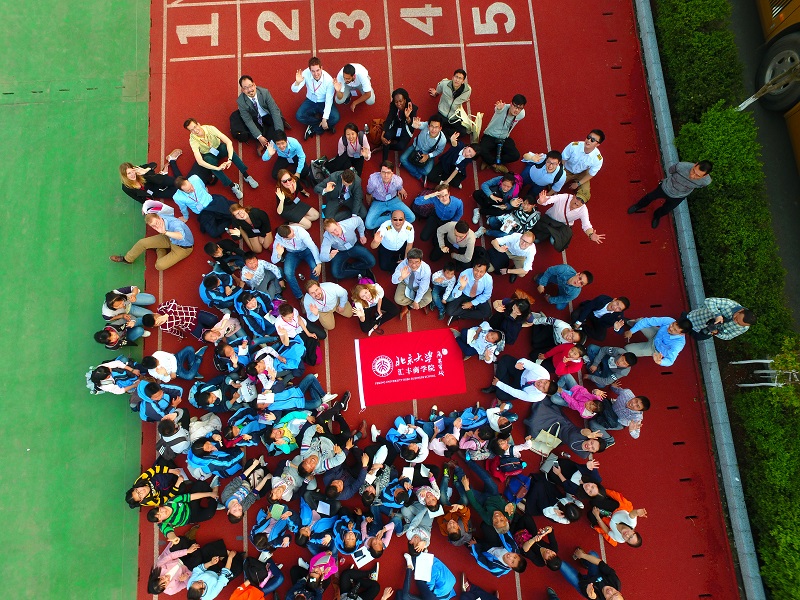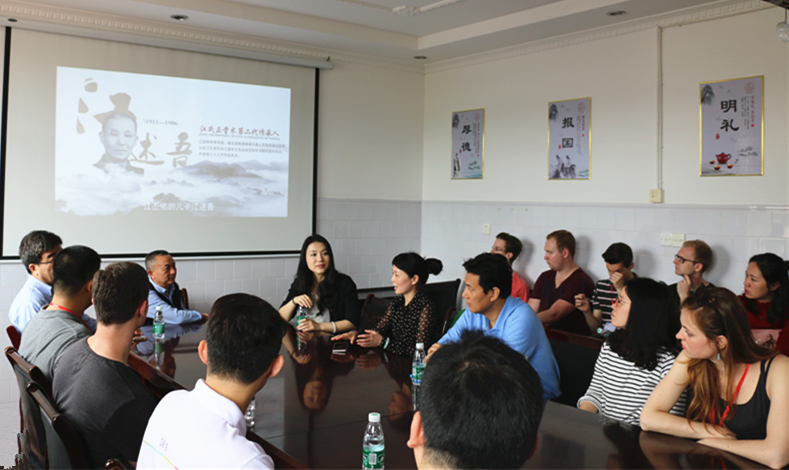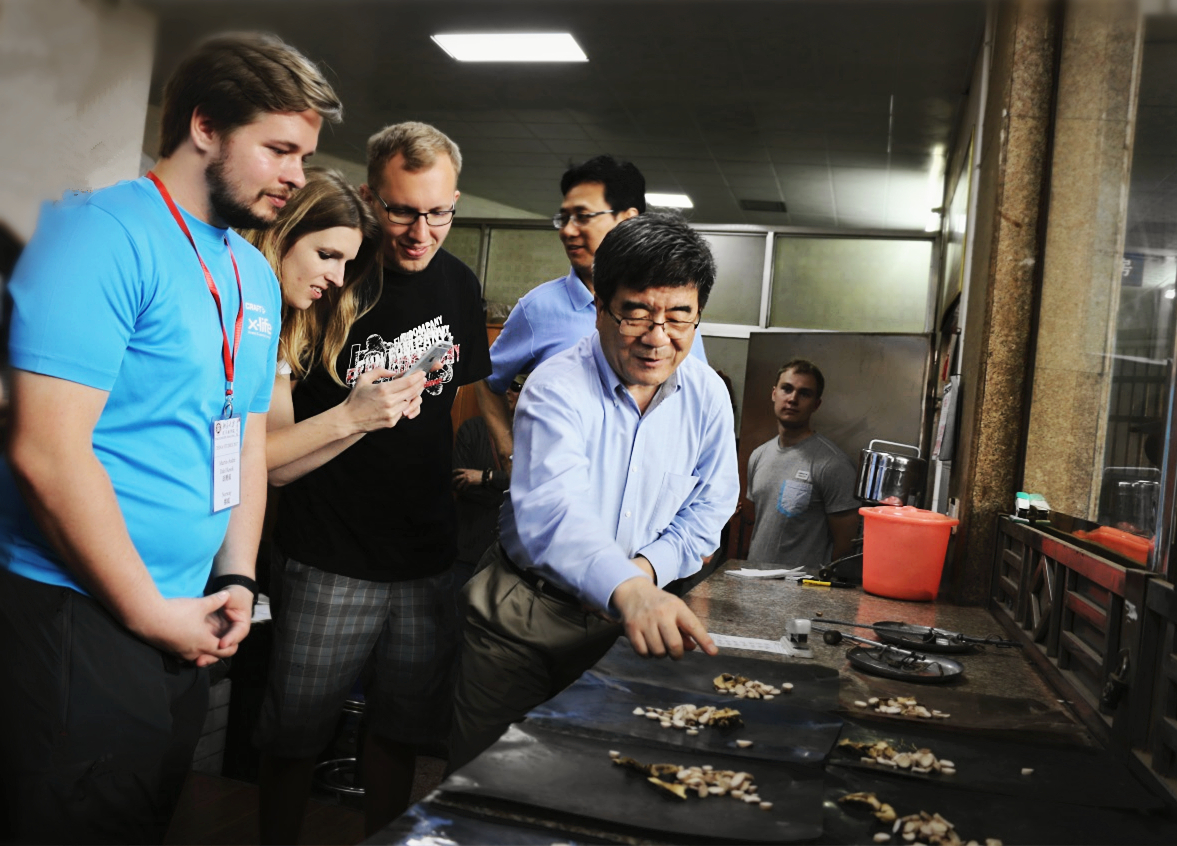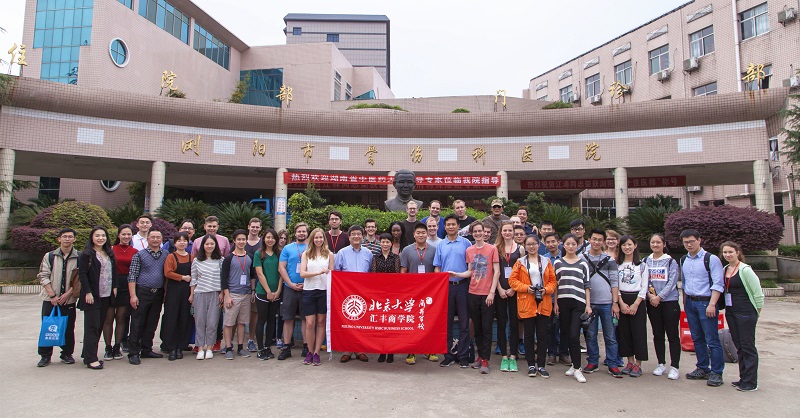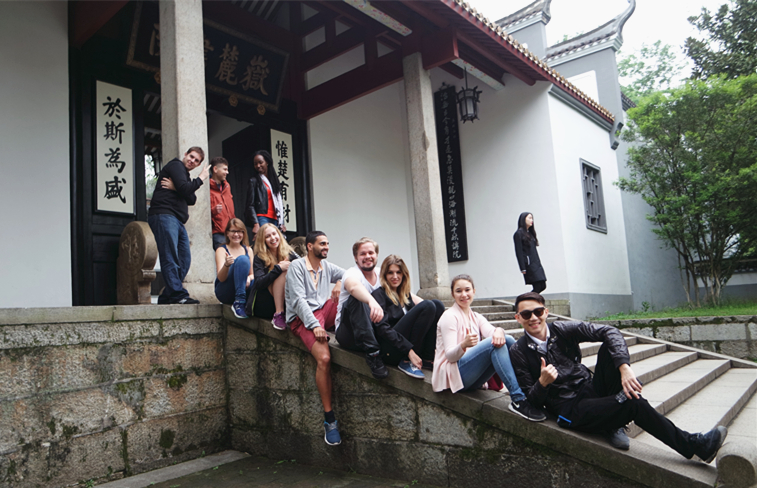According to a Chinese saying, “Only so much learning can be done in books, but the real education comes from actual experiences.” As part of the China Studies course at Peking University HSBC Business School (PHBS), 23 international students visited Changsha, the capital of Hunan Province, and its surrounding rural areas to learn about local business, provide volunteer teaching and experience Chinese rural life. They visited Sichuan province last year, and explored Hunan province this year with great support from PHBS Dean Hai Wen.
The first stop on the trip was to Sany Heavy Industry Co., Ltd, a Chinese multinational heavy machinery manufacturing company headquartered in Changsha, Hunan Province. It is the sixth largest heavy equipment manufacturer in the world, and the first in its industry in China to enter the Financial Times Global 500, an annual snapshot of the world’s largest companies to show how corporate fortunes have changed in the past year, and to highlight relative performance of countries and sectors.
PHBS delegation visits Sany production workshop
After touring Sany exhibition hall, the delegation of PHBS international students and faculty learned about the company’s history, international strategies, and accomplishments. For example, by acquiring Putzmeister, a Germany-based manufacturer of concrete pumps, Sany has expanded its product portfolios, and increased market coverage and competitiveness, making a strong presence in the global concrete machinery market. PHBS students also had a chance to visit the Sany 18 production workshop and see some of the trucks being assembled.
The tour was followed by a presentation and discussion, focusing on Sany’s entrepreneurship, future blueprint and international strategies. Zhou Wanchun, Sany vice-president and director of global business, said that Sany's global development is highly consistent with China’s "One Belt and One Road" initiative, with 70%-80% of its overseas sales made in the within the related countries and regions.
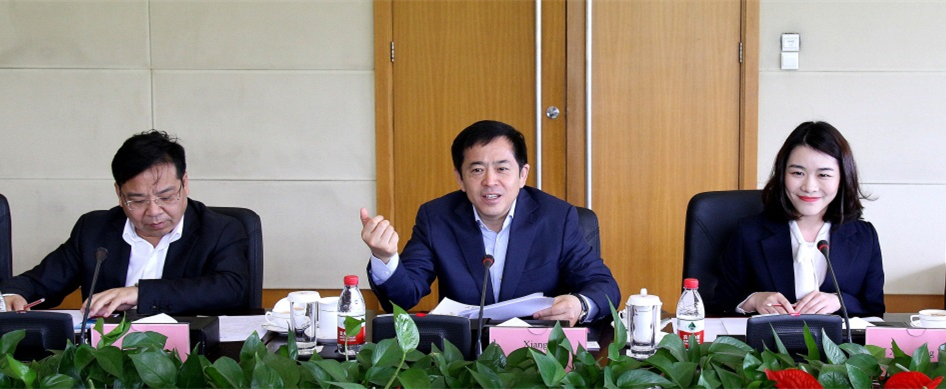 SANY President Xiang Wenbo takes questions from international students
SANY President Xiang Wenbo takes questions from international students
Then, Sany President Xiang Wenbo spoke about the company’s global acquisition, labor costs, intelligent manufacturing and future business blueprint. He pointed out that localization of production and human capital is critical to Sany’s international development. “In addition to setting up production facilities in USA, Germany, India and Brazil to provide customized equipment to the local markets, Sany has also been recruiting local employees to play key roles, for instance, CEO, service engineers and salesperson.”
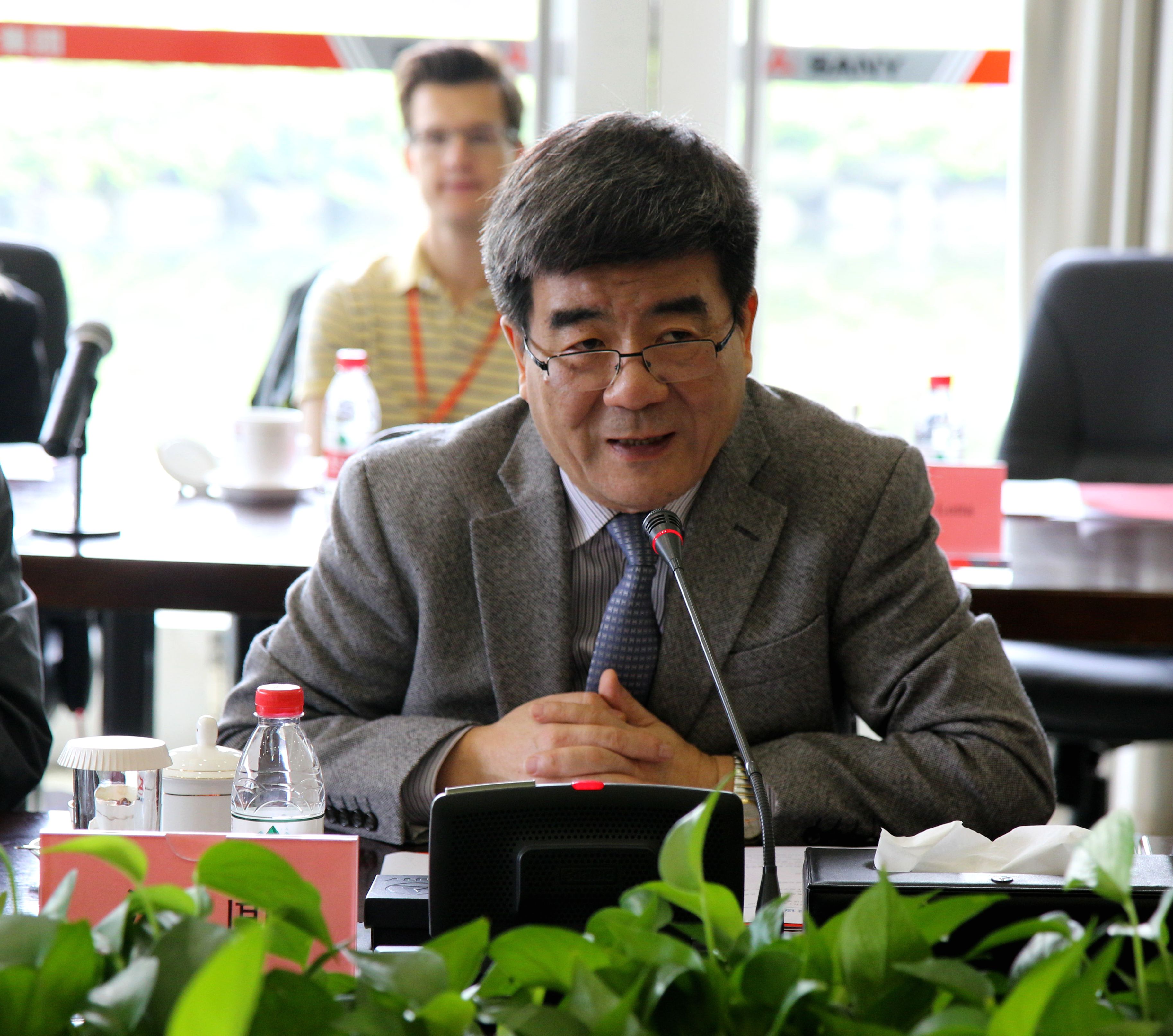 PHBS Dean Hai Wen delivers a speech
PHBS Dean Hai Wen delivers a speech
Impressed by Sany’s global presence, PHBS Dean Hai Wen gave an introduction about PHBS international strategies, and hoped that PHBS and Sany can forge a long-lasting cooperation, in which Sany serves as an internship base for PHBS international students, and PHBS acts as a think tank to support Sany’s future global development. Professor Huang Haifeng, who teaches the China Studies course, stressed how international students can later be hired to help serve as an important bridge in China for Chinese companies wanting to expand globally, as PHBS international students learn not only their subject of finance economics or management, but also Chinese culture and the Chinese language.
The group photo of PHBS delegation at SANY
Later that day, students visited Shuang Shiping High School in Shegang County, a rural area about an hour’s drive from Changsha. A highlight of the school visit was the chance for PHBS students to provide a classroom lesson for the high schoolers. Led by Associate Dean Ren Ting, Assistant Dean Young Joon Park, Professor Shi Jiao, and Professor Liu Yang, four teams provided 50-minute classes (in English) with topics ranging from geography, foreign culture, and English.
"International teachers" give English lessons for local students.
“At first, we worried about whether the teaching materials we prepared were suitable for local kids. Luckily, the kids loved them and actively interacted with us,” said Chinese-Bolivian international student, Jason L. Yu. This unique teaching experience offered PHBS international students a rare opportunity to get first-hand experience into china’s vast education system and a deep understanding of the country’s workings and dynamics.
local students play a transitional Chinese instrument for PHBS delegation.
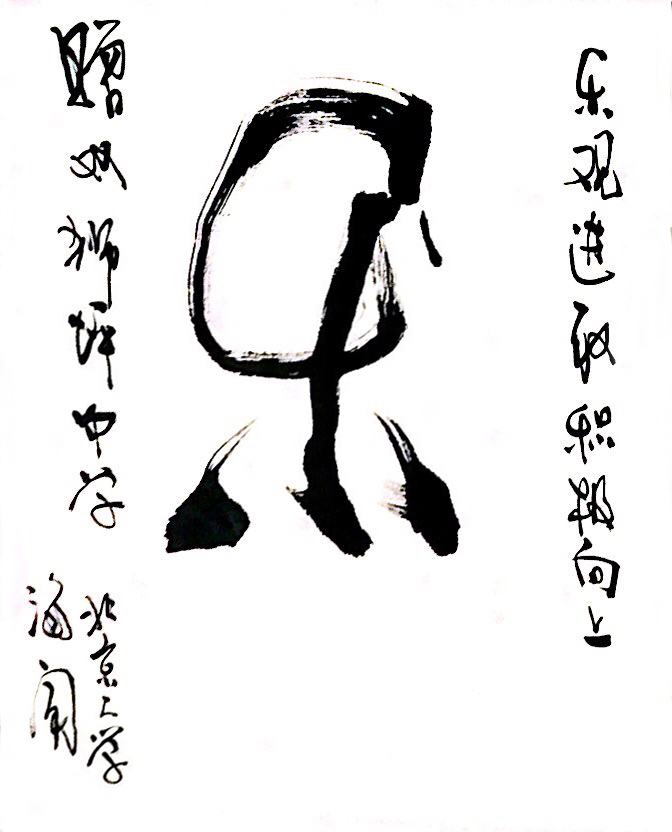 PHBS Dean Hai Wen gave a piece of his calligraphy work as a gift to the high school.
PHBS Dean Hai Wen gave a piece of his calligraphy work as a gift to the high school.
Afterwards, the high school students performed music for the PHBS visitors, followed by hugs and picture taking. The motto of the high school is “乐” (Le4 or Yue4), which embodies two meanings: The first meaning is “happiness,” as the school strives to create a happy environment for the students; And the second meaning is "music", as the teachers and students here know how to play one or more musical instruments.
PHBS Dean Hai Wen presented a piece of his calligraphy work about the Chinese character “乐” as a gift to the high school “in the hope that the school is surrounded by the sound of music, laughter and reading.” The evening concluded with a traditional rural Hunan meal and a fireworks display.
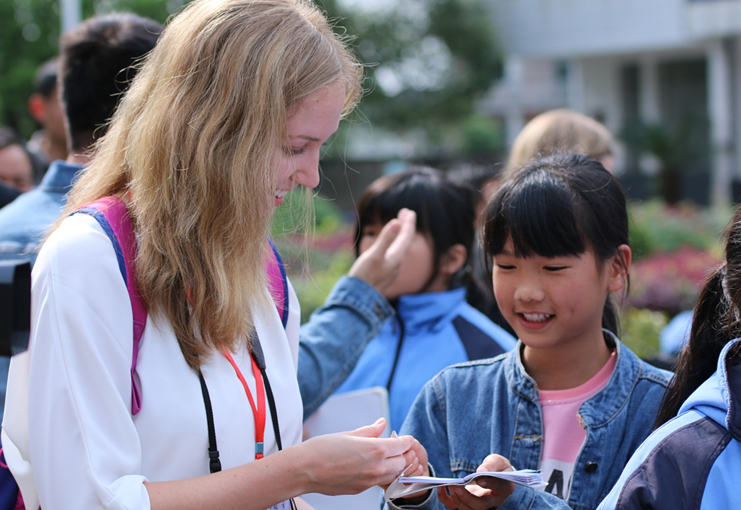
Lotta Matikainen (Finland) writes down best wishes for local students .
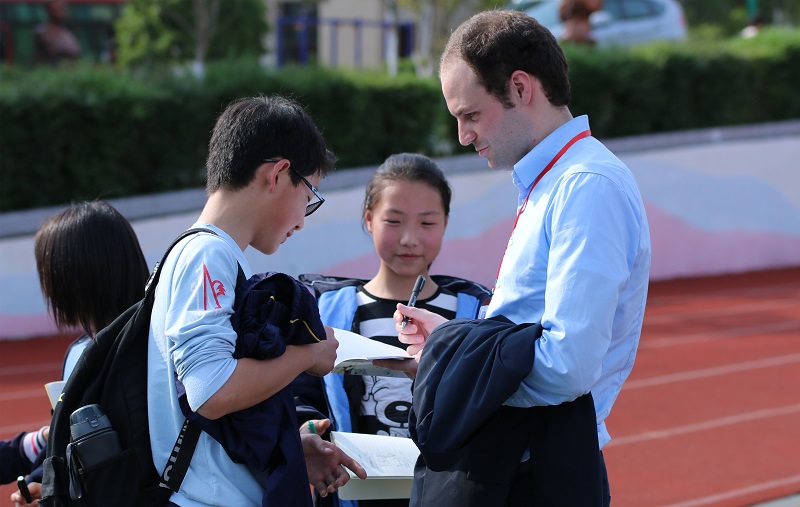
Pascal Hoedel (Switzerland) writes down best wishes for local students .
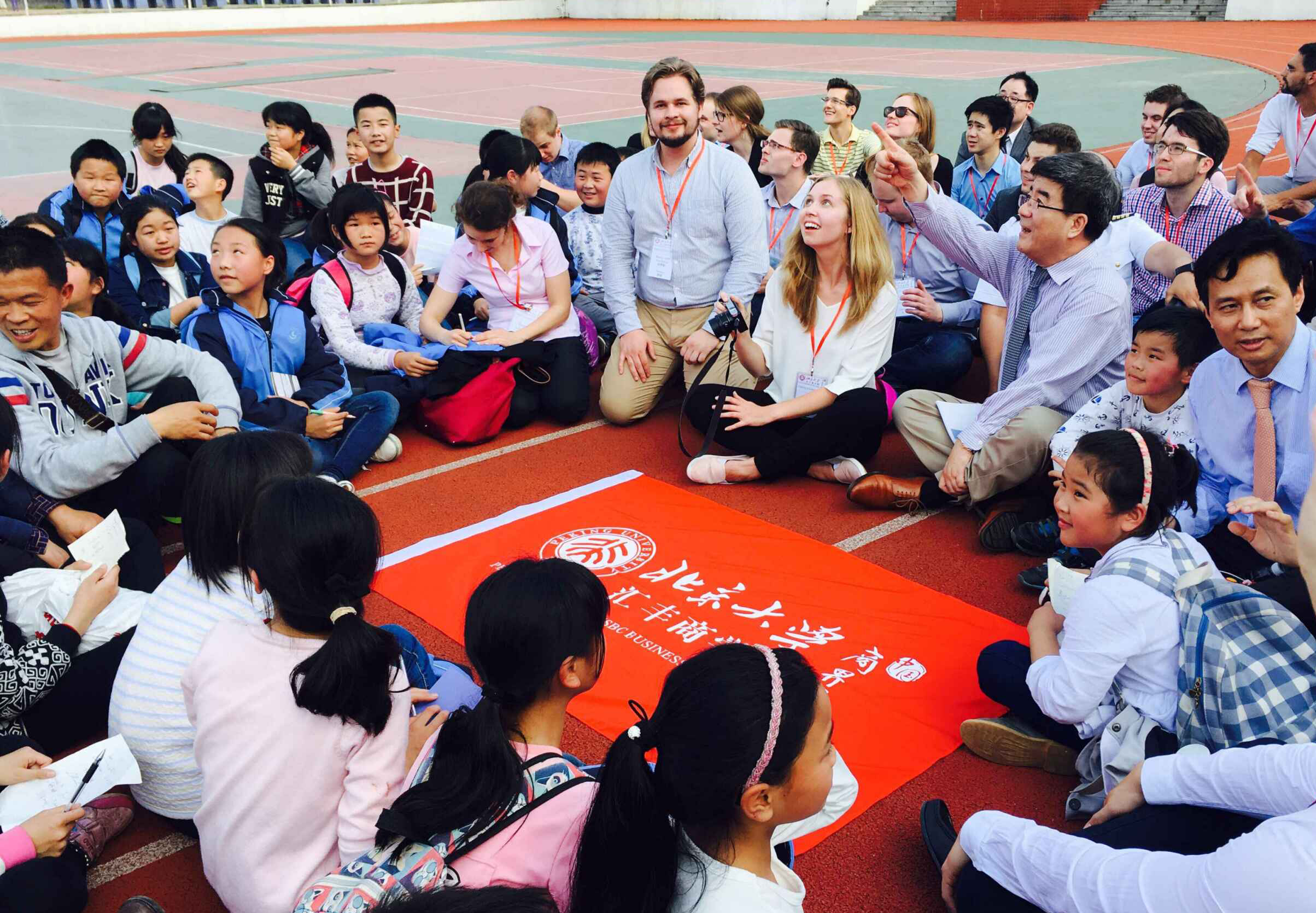
PHBS delegation and local students wave at a drone to take group pictures
On the second day, the PHBS delegation visited the Shegang County’s traditional bone-setting hospital. As students and staff had earlier seen education in a rural area, they now got to see healthcare in a similar setting. The bone-setting therapy in traditional Chinese medicine is a treatment for motor system diseases like bone fracture and joint dislocation through pulling, repositioning and aligning etc, with small splints keeping the broken bones in position.
Students and staff from PHBS receive a lecture about Bone-setting history and therapy.
In rural China, bonesetters treated the majority of the common people since they were cheaper than physicians. Many bonesetters were self-taught, and then these skills were then passed on from generation to generation created families of bonesetters.
Dean Hai and students visit the dispensary.
The group photo in front of a Chinese transitional medicine hospital
A tour through the various clinical departments, along with a short lecture by the head of the bone-setting hospital, provided insights into how Chinese people treat the sick and injured, and how traditional Chinese medicine is used in daily life.
International students visit Yuelu Academy
On the last day of the trip, the tour started out at Yuelu Academy, an ancient school where Mao Zedong was said to have studied briefly. Located on the east side of Yuelu Mountain in Changsha, Yuelu Academy is considered one of the four most prestigious academies in China for the last 1000 years, dating back to the Northern Song dynasty.
“It was very peaceful, and it was very quiet,” said Blanche Schwaller, an exchange student from Switzerland. “The beautiful tradition buildings especially caught my eye.” The day’s final destination was a small island in the Xiang River in the middle of the city, where the famous stone sculpture depicting Chairman Mao in his youth is located. Reportedly, Mao often swam in that river.
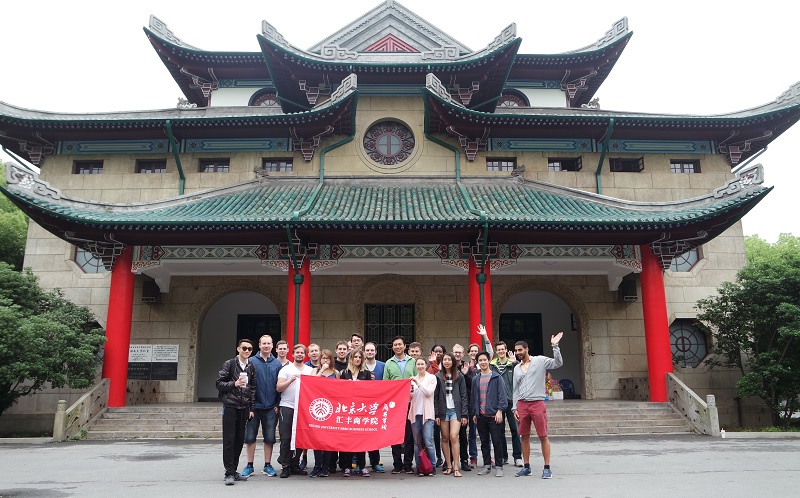 International students gather together for a group photo in front of the Yuelu Academy
International students gather together for a group photo in front of the Yuelu Academy
As one of China’s most internationalized business schools, PHBS offers international students the China Studies course to help them gain first-hand and practical knowledge about China. The course, designed and delivered by Prof. Huang Haifeng, provides insights on business practices and other important aspects of Chinese culture through a body of lectures, company visits, field studies, and internships.
“The trip to Hunan was definitely an outstanding event. As future business leaders, students need to know about the business and social environment of China,” said Julian Barg, a German student and the China Studies course assistant. “China Studies makes a great impact, as international students will be more likely to stay in China and start their businesses here. And the legacy of PHBS will be extended to the international sphere."
For most international students, they felt that with the rapidly changing Chinese economic and social landscape, allowing them to experience China’s education system as well as medical system is an important step in understanding where things like healthcare and education reform came from, who and what they affect, and where the country is going. In the future, China Studies course will provide more international students with the chance to visit China’s top companies, conduct field studies in rural areas, and look into Chinese culture.
By Derek Hertel, and Annie Jin
Edited by Priscilla Young
Photographer: Deng Jun, Yan Yujia, and Lotta Matikainen

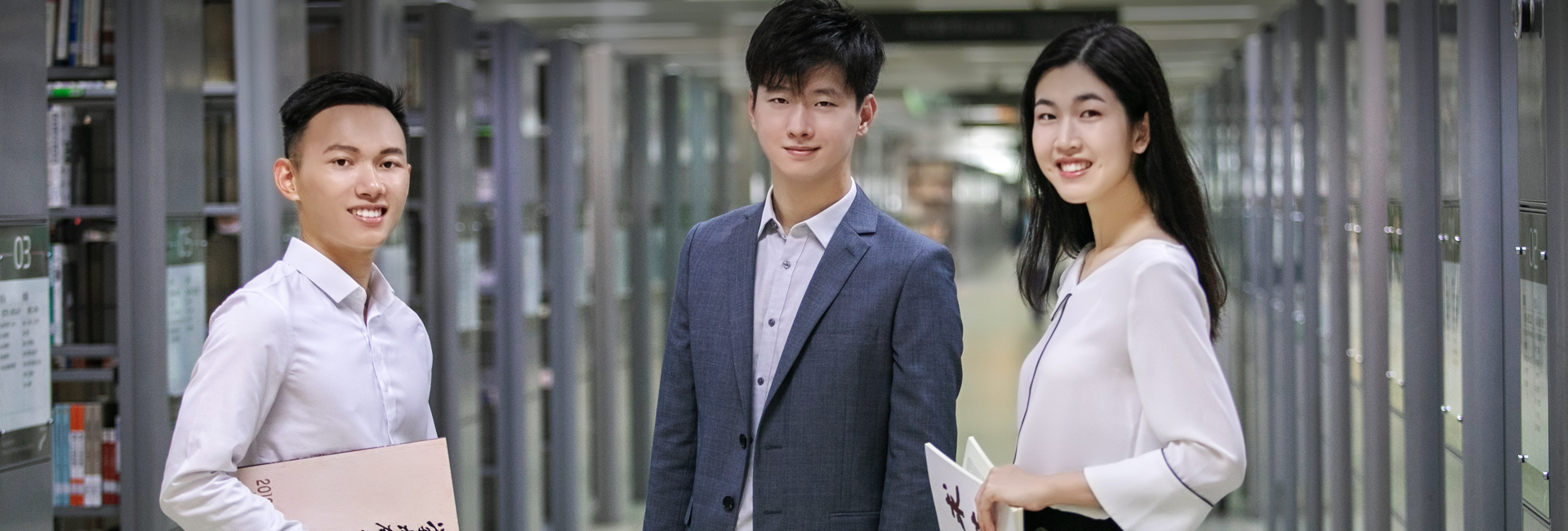
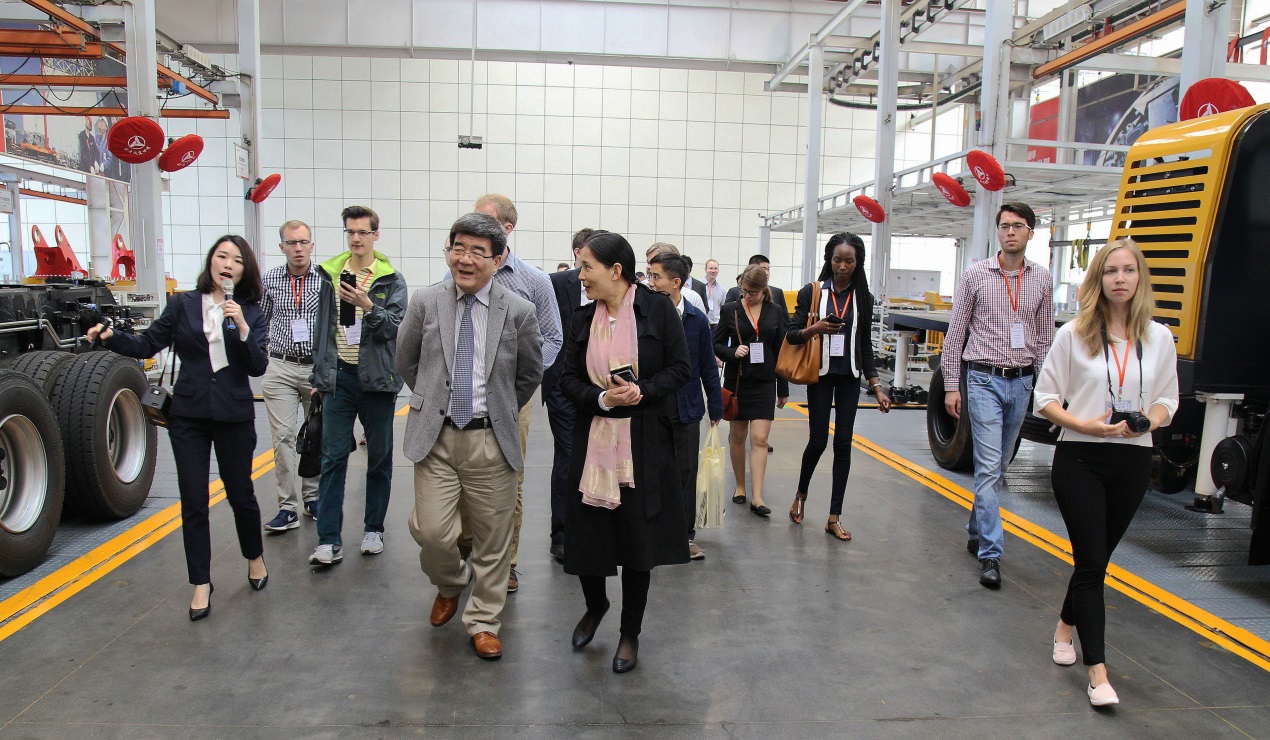
 SANY President Xiang Wenbo takes questions from international students
SANY President Xiang Wenbo takes questions from international students
